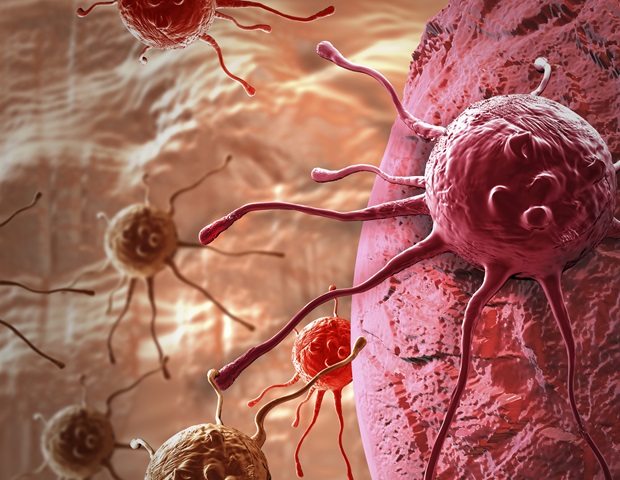Modifi Biosciences announced today that the journal Science has published a critical study validating the company's novel oncology platform based on new classes of molecules that exploit tumor-associated DNA repair defects through direct cancer cell DNA modification.
The company closed a $6.4M seed round, which will support IND-enabling studies and expansion of the platform to target cancers with other DNA repair defects. Key investors in this round include HighCape Capital; Connecticut Innovations; Ironwood Capital; the Brain Tumor Investment Fund, an affiliate of the National Brain Tumor Society; and Yale Ventures.
This approach redefines the rules on how to selectively kill cancer cells via direct DNA modification and positions our company as a leader in this emerging field of oncology drug development."
Ranjit Bindra MD, PhD, Study Co-Lead Author and Co-Founder, Modifi Bio
Bindra is the Harvey and Kate Cushing Professor of Therapeutic Radiology at Yale School of Medicine and Scientific Director of the Yale Brain Tumor Center at Smilow Cancer Hospital. "As a brain tumor doctor treating patients for over a decade, my colleagues and I have seen gliomas take the lives of too many patients. Our discovery represents a major step forward in changing the treatment paradigm for this devastating disease, as well as for many other cancers with intrinsic DNA repair defects."
The technology bypasses conventional approaches that indirectly target proteins in cancer cells and demonstrates robust anti-tumor activity in glioma, one of the deadliest forms of brain cancer, while sparing normal tissue. In the Science publication, the group's new class of molecules were found to be exquisitely active and selective against cancer cells that lack expression of a key DNA repair protein called MGMT (O6-methylguanine methyl transferase).
Approximately half of all glioblastomas and up to 80% of gliomas lack MGMT. Emerging research indicates that MGMT deficiency is seen in many other tumor types, suggesting broad applicability for this strategy in treating cancer.
Modifi Bio is creating a new class of molecules, based on research conducted at Yale, that fragment in cells and induce DNA modifications, which are irreparable in cancer cells with DNA repair defects. Modifi Bio's compounds are designed to be orally bioavailable and possess favorable drug-like properties, which will allow them to rapidly file an Investigative New Drug application with the U.S. Food and Drug Administration in anticipation of Phase I clinical trials in 2024.
"These molecules are particularly promising as therapeutics because of their ability to directly modify DNA of cancer cells, which we believe will not only be effective in fighting cancer but will also allow us to overcome key resistance mechanisms," said Seth Herzon, PhD, study co-lead author, Modifi Bio co-founder, and the Milton Harris '29 PhD Professor of Chemistry in Yale's Faculty of Arts and Sciences.
"Novel treatments for these types of brain cancer are urgently needed. I am enthusiastic that this paradigm-shifting discovery may lead to the first clinically meaningful pharmacological advances in the treatment of glioma in over two decades," said Roger Stupp, MD, a member of the Modifi Bio Scientific Advisory Board, Paul C. Bucy Professor of Neurological surgery, and Chief of Neuro-oncology at Northwestern University. Stupp first published the pivotal studies over 20 years ago, which define the current standard of care for glioma.
Modifi Bio
Lin, K., et al. (2022) Mechanism-based design of agents that selectively target drug-resistant glioma. Science. doi.org/10.1126/science.abn7570
Posted in: Medical Research News | Medical Condition News
Tags: Biotechnology, Brain, Brain Cancer, Brain Tumor, Cancer, Cancer Therapy, Cell, Children, CT, DNA, Doctor, Food, Foot, Glioma, Gliomas, Hospital, Medicine, Neuro-oncology, New Drug Application, Oncology, Protein, Radiology, Research, Surgery, Therapeutics, Tumor, Walking
Source: Read Full Article
